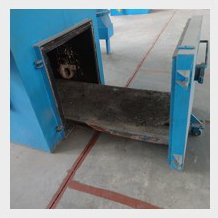Waste management has been a significant issue for countries around the world, with the amount of waste generated increasing every year. However, Sweden has found a successful solution to this problem through the use of incineration plants. These plants not only help to reduce the amount of waste going to landfills but also provide a sustainable source of energy.
Incineration plants, also known as waste-to-energy plants, burn waste to generate electricity and heat. Sweden has been a pioneer in this technology, with over 32 incineration plants across the country. In fact, Sweden is so successful with its waste-to-energy program that it imports waste from other countries to keep its incineration plants running at full capacity.
One of the key reasons for Sweden’s success with incineration plants is its commitment to sustainability and environmental protection. The country has strict regulations in place to ensure that only non-recyclable waste is incinerated, and that the emissions from the incineration process are carefully monitored and controlled. This has helped Sweden to maintain high air quality standards, despite the presence of numerous incineration plants.
In addition to being an effective way to manage waste, incineration plants also provide a sustainable source of energy. By burning waste to produce electricity and heat, Sweden has been able to reduce its reliance on fossil fuels and cut its carbon emissions. In fact, the energy produced from waste-to-energy plants accounts for a significant portion of Sweden’s heating and electricity needs.
Sweden’s success with incineration plants can serve as a valuable lesson for other countries looking to improve their waste management systems. By investing in waste-to-energy technology and promoting sustainable practices, other countries can reduce their reliance on landfills and fossil fuels, while also providing a clean and renewable source of energy.
However, it is important to note that while incineration plants can be an effective way to manage waste, they are not without their drawbacks. The emissions from the burning of waste can still have an impact on air quality, and there are concerns about the potential release of hazardous substances into the environment. It is essential for countries to carefully monitor and regulate their incineration plants to minimize these risks and ensure that they are operating in an environmentally responsible manner.
Overall, Sweden’s success with incineration plants has demonstrated the potential for waste-to-energy technology to be a sustainable and effective solution for waste management. By carefully managing and regulating these facilities, countries around the world can reduce their impact on the environment while also providing a valuable source of energy. As the global community continues to grapple with the challenge of waste management, Sweden’s example shows that there are effective and sustainable solutions available.



